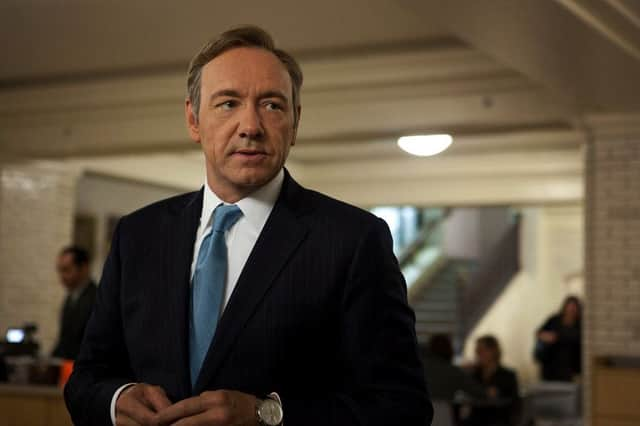US vs British TV shows – which ones are best?


TV executives like to back ratings winners - if a series has proved a smash in one country, there’s a high chance a US network will decide to give it a makeover for their home market.
While some remakes prove surprisingly faithful to an original format, others are given radical adjustments which can alienate as many fans as they enthuse. The question on everyone’s lips, though, will always be: which one is better?
THE OFFICE
Advertisement
Hide AdVeteran American comedy writer Greg Daniels was the man charged with adapting a multi-award winning sitcom set in a Slough paper merchants for audiences across the pond in 2004. While the Ricky Gervais original was often considered unimprovable, its American sister show became a huge success in its own right; lasting nine seasons and 201 episodes. Although visually similar, the US version eventually followed a different path from its UK elder sister and inspired a similar level of devotion.
Verdict: Away win. While the UK original remains a high watermark of comedy writing, the American Office offers more to enjoy given the number of episodes and character development.
HOUSE OF CARDS
The original House of Cards was adapted by Andrew Davies for the BBC from the novel of the same name by Michael Dobbs. It was an immediate critical and ratings hit in 1990, thanks in no small part to a towering performance by Ian Richardson as the scheming power-hungry MP Francis Urquhart. American screenwriter Beau Willimon revived the format in 2013 for Netflix, moving the show to Washington DC. Kevin Spacey has won plaudits for his performance as Francis Underwood, a character as equally deviousness as Urquhart in his persuit of political power.
Verdict: Home win. Ultimately, it comes down to the late Ian Richardson v Kevin Spacey. While the UK version may look a little dated, the climatic final scene of the first series is enough for it to edge ahead of its American sister.
LIFE ON MARS
A love of cop shows is shared between American and UK audiences, and the prospect of a detective being transported back in time to 1970s New York City seemed like a plot device guarenteed to be a ratings smash. But while the British original, starring John Simm, had proved a hit, the American show of the same name struggled and was eventually dropped after one series.
Verdict: Home win. Manchester easily beats New York when it comes to time-travelling detectives.
STEPTOE AND SON
Advertisement
Hide AdA sitcom about a family rag-and-bone business in Shepherd’s Bush, London, sounds like the kind of format which would prove baffling to foreign audiences. But Steptoe and Son, which ran for 57 episodes until 1974, was succesfuly exported to the US and reinvented as Sanford and Son. While the British show was primarily concerned about class and social climbing, its American cousin explored more edgy themes such as race relations. It proved a ratings hit and lasted six seasons until 1977. Time magazine would later name it one of the best 100 shows of the 20th century.
Verdict: Draw. The two series are still rightly considered classics in their own right; each tackled social issues in an original and entertaining way; both presented down-at-heel characters who were widely loved despite their flaws.
THE THICK OF IT
Advertisement
Hide AdFollowing the Bafta-winning success of this biting British political satire, creator Armando Iannucci and the principal writers crossed the pond to create Veep. This continuation has ensured the Washington DC-set retains the same razor-sharp humour and visual style that made The Thick of It such a success, despite several important differences between the two. Veeo has proved a success and has won several major critical awards as well as being nominated four years in a row for the Primetime Emmy Award for Outstanding Comedy Series.
Verdict: Home win. Veep may have a bigger budget and higher production values, but it lacks the intensity of Peter Capaldi’s manic Malcolm Tucker and Capitol Hill just can’t compete the chaotic nature of Westminster politics for comedic opportunity.